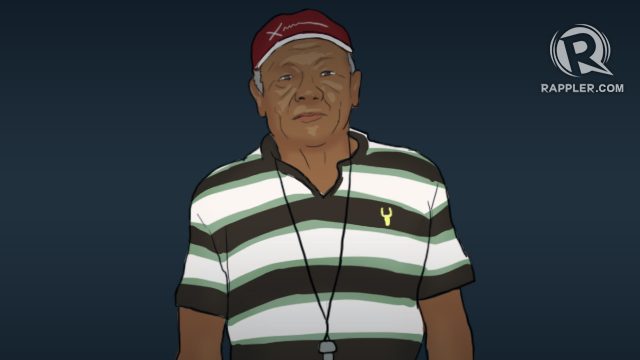SUMMARY
This is AI generated summarization, which may have errors. For context, always refer to the full article.

MANILA, Philippines – Rosito Andaya, the track and field coach who developed a long list of Asian and national champions, died Wednesday night in Tagudin, Ilocos Sur, his son told Rappler.com in a text message.
Giovanni Andaya said his father, who left coaching last year at Arellano University due to a minor stroke, died of pneumonia. He was 77 years old and wake details have to be announced, said his son.
But Philippine track and field has already felt the loss of Andaya, and the current crop of national coaches will never hear the bronzed, balding man shouting: “Cut that stride! Ok, Maintain!” Then he would bellow: “Swing! Knee action!” as his athlete raced towards the finish line.
“It will be a long time before we find someone like him,” said Renato Unso, secretary-general of the Philippine Amateur Track and Field Association. Unso was honed by Andaya in the mid-1970s and the mentor brought out Unso’s versatility: a 400-meter hurdler who could win 100 and 200 meter races, shine in the long and triple jumps.
“Technically, his knowledge was not that deep. But he patiently taught his athletes and he builds your confidence. He was without peer in that aspect,” added Unso.
His brilliance stretched for over 40 years. His first big name athlete was the late Abdulkadir Guiapar, who won the 1973 Asian championship 400-meter hurdles, many-time Milo Marathon champion Justo Tabunda Jr., Asia’s fastest woman Lydia de Vega, Asian Games bronze medallist Elma Muros, former SEA Games 10,000m champ Mario Castro, decathlon king Dario de Rosas, two-time SEA Games marathon champ Herman Suizo to Christopher Ulboc, the only lone Philippine-born Athletics gold medalist in the last SEA Games.
Andaya confounded his colleagues with upset wins crafted in detail. In the 2014 Philippine National Games, Rafael Poliquit Jr stunned the heavily favored Eduardo Buenavista in the 10,000 meters.
“I found out that Poliquit is a good worker and I worked on that to build his confidence. Then the race was divided into 4 stages. Poliquit was given the order to surge in the first stage and relax a bit in the second, then surge in the third. In the fourth, we went all out. Buenavista’s kick was neutralized,” Andaya said in a conversation with this writer a few months before he fell ill.
Elma Muros, who was deemed a washout when she was 20 years old in 1986 until Andaya turned her into the country’s athletic superstar, could not reply to questions as she cried when Giovanni texted them, said her husband Jojo Posadas.
“She couldn’t stop crying. We owed a lot to coach Andaya,” said Posadas in a separate phone interview.
Andaya turned Far Eastern University into a power in the UAAP and the Private Schools Athletic Association in 1969. That team was led by Guiapar and Narciso Flores, 800 and 1500m national champion.
Later Posadas took Andaya to the Jose Rizal University team and they built the team from scratch and it eventually won 4 NCAA titles. Andaya transferred to Arellano in 2012.
He insisted his athletes wake up 5 am; the long distance runners having started their long runs at 3:30 am. “During drills, he teaches you how to run properly, how to vary your stride. He will not stop until you get it done,” said Pines Lim, a long distance runner in his 1969 team.
In the old athletes quarters at FEU, beside Andaya’s bed were stacks of athletics magazines and newspapers in a neat pile. A few pages of yellow paper detailing the day’s schedule of training were folded.
For all his brilliance, Andaya could be difficult to deal with: stubborn, prickly and sometimes sharp-tongued. Friendships would start and end. He had a very small circle of close friends.
“But even he would be hung over or slept only a few hours, he would be up at the oval at 6 am. He always knew what to do and with his passion for track and field, he is a very tough act to follow,” said Posadas.
In one national open in the mid-1980s, Andaya said, after an interview, what was next. “Continue working. And let the historians judge me,” he said. – Rappler.com
Add a comment
How does this make you feel?
There are no comments yet. Add your comment to start the conversation.